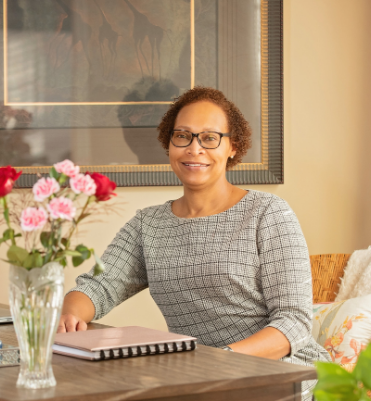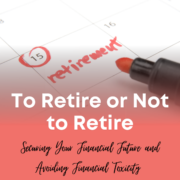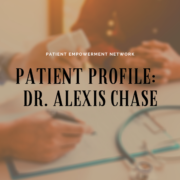To Retire or Not to Retire: Securing Your Financial Future and Avoiding Financial Toxicity
This is continuing to be an extraordinary time in our history. We don’t know what is coming down the line five, ten, or fifteen years from now. But what you can expect is, that in some form, there will always be economic challenges that we will experience. Few people are alive that experienced the 1918 pandemic. This during the height of WWI. The world soon after experienced the great depression from 1929 to 1939. And in the mists of that in the 1930’s a big swath of our country experienced the Dust bowl which intensified the crushing economic impacts of the great depression. We can look at this from a global perspective or really look at how situations like this can affect us personally. Think about 2008-2009 when the world suffered from the market crash as a result of the subprime mortgage crisis. The resulting loss of jobs and interest rates at 0% the first time in history was a precursor in a way to what we are experiencing now. At least how we seem to be managing the economic fallout.
How is it affecting you personally? What does this have to do with you? I can tell you that as a financial advisor, I saw firsthand how many people suffered financially, I also witnessed how many people did not suffer the economic crisis at all or minimally in 2008-2009. And surprisingly, it did not necessarily matter how much money they had. What separated them from people who suffered is, they understood that things were not always going to be good. They knew there was going to come a time when the market would have big market fluctuations or corrections. They were prepared with cash reserves and their assets were positioned to withstand these fluctuations. Let’s look at this from the perspective of a cancer patient. You have and may be experiencing the uncertainty of the health insurance market as well as it’s associated cost. Not to mention the ongoing rumors of changes to social security and Medicare. You may also be contemplating not going back to work and retiring early or are ready to go on Medicare.
This is an important crossroads in your life. You want to make sure that you are making the absolute best decision. This would require you to look really close at your financial house. What kind of debt do you have? What kind of health insurance do you have and will you have if you left work early? What is the associated ongoing cost? What benefits will you be giving up? Income for sure. Can you continue to live on the reduced income? When will you be able to take social security? Will you need to have supplemental income? How can you pay off debt now so that it won’t eat up retirement income? What’s the best kind of debt to have? Who else in your household will your early retirement effect and how? Have you included inflation in your retirement income calculations if you’ve planned at all? Have you consulted with a professional to help you navigate the ongoing rise in healthcare cost in your financial lives?
I know this is a lot. And as a cancer patient you are well aware of the high costs associated with your care. And, financial toxicity overwhelms cancer patients more than any other illness.
Just as you go to an expert for your cancer care, It is important and I would say necessary, for you to seek out the help of a professional for your financial health. Let go of the idea that you can do it yourself. Honestly, you can’t afford to be wrong. If you’re older you usually cant make up monetary mistakes. and If you’re retired, it isn’t easy to go and just pick up a job. If you’re ill it’s even more difficult.
Review your life insurance policies and how your assets are working. Professionals can assist you with recommendations to help you generate more income if needed or help you manage taxes. Many even plan for healthcare cost throughout your retirement. They can help you with social security, disability, budgeting and all things financial. They will ask you questions and bring up things you had no idea that could derail your financial life.
Look at all of your spending. Let go of all the things that are wasteful. Instead redirect it into a cash reserve account or pay off card debt or put into an account to pay for medical necessities.
Again, reconsider seeking out a financial professional to review and find the weaknesses in your financial picture. They all work differently, and charge differently as well. But believe me, it’s well worth delving into.

Diahanna Vallentine, BCPA, Financial Empowerment Lead
In 2002 Diahanna and her husband received the news that her husband had MGUS, a precursor to Multiple Myeloma. Upon her husband death in 2013, Diahanna immediately decided to make it her mission to help patients and caregivers empower themselves to speak up and to position themselves as partners in their treatment. Diahanna became a Board-Certified Patient Advocate. She is currently the Financial Myeloma Coach for The Myeloma Crowd Foundation.










